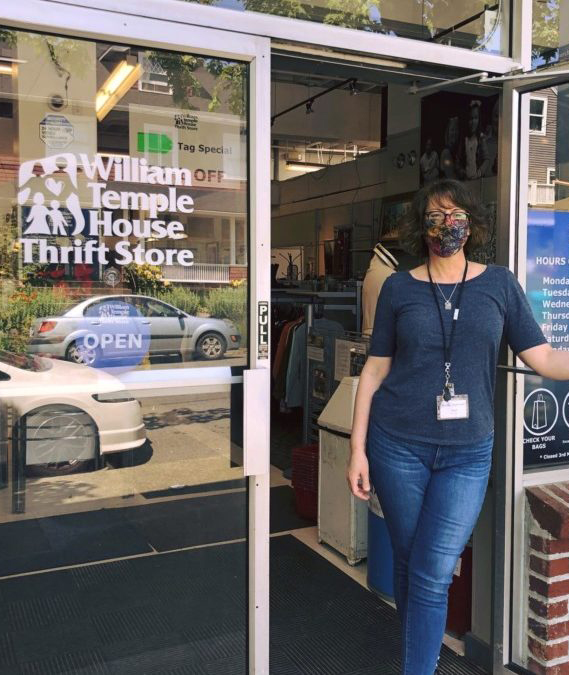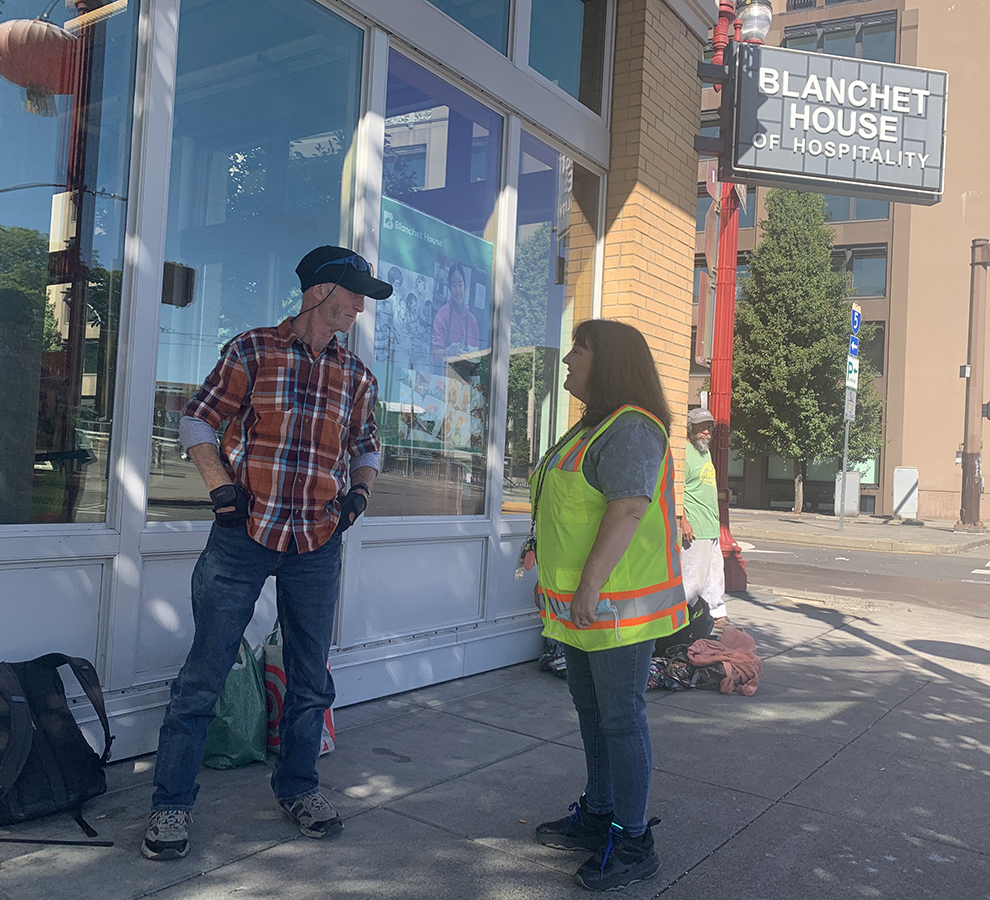OTIP History
For people experiencing homelessness due in part to untreated mental health issues, substance addiction, or disabilities, navigating resource systems on your own is next to impossible.
The first obstacle for many people is accessing a working phone. Then you can find yourself up against dead-end leads, full voicemail boxes and unanswered calls to service providers, requests for faxed paperwork, requirements, and fees leading many people to give up. The OTIP Portland aims to provide individualized support to help people more easily access life-saving resources on their journey to suitable housing.
The Old Town In-Reach Program (OTIP) was conceived by Scott Kerman, the Executive Director of Blanchet House. A nonprofit cafe and shelter serving people challenged by poverty, food insecurity, physical and mental disabilities, addiction, and homelessness.
For 70 years, the organization has offered free hot meals, clothing, and transitional shelter utilizing a small staff. A drastic increase in methamphetamine use, physical disabilities, chronic illness, and mental health disorders amongst the population it serves caused disruptions of aid delivery.
More frequent outbursts and dangerous behaviors inside and outside caused difficulty in safely serving food to hundreds of diners a day. On some days Blanchet House was forced to stop service altogether because of violence or someone experiencing psychosis. Peer organizations in the community offering aid were experiencing similar challenges.
Partners Experiencing Similar Challenges
Kerman learned from partners that one innovative way to better serve people is to employ Peer Support Specialists. He reached out to MHAAO for support in this new area.
Jennifer Coon, a peer support specialist (PSS) employed by MHAAO was the first specialist to be stationed at Blanchet House during meal services. It was immediately clear that more PSSs were needed to help build relationships with clients, de-escalate crises, and connect people to services.
Kerman started working on this program in 2020, and in 2021, Multnomah County voted to give more than $1 million to help fund OTIP. Kerman says that two things became apparent over time: The peer support specialists were experts at building trust and defusing crises that might otherwise disrupt services at Blanchet House.
“That trusting relationship is so important,” he says. “We’re serving people who are used to being disappointed, ignored, or maybe even lied to, and so they’re reticent to ask for help because it doesn’t always result in anything good. As they come to trust their peers, they become more confident about asking for help, and that’s when we can really see some progress with maybe helping people get to a better place.”
Questions about the OTIP team or program? Contact Kathy Finkle at info@blanchethouse.org or call 503-241-4340.
















